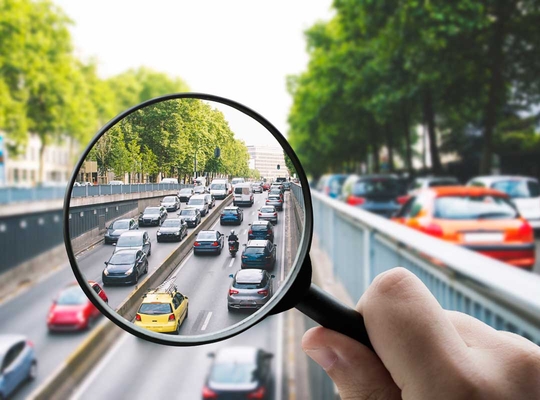You are here
N-VA on the Brussels road toll: “A tax on the commuter”

The Brussels kilometre-based toll is ready. From 2022, the motorist will pay a city toll. Cieltje Van Achter, who leads the N-VA group in the Brussels Parliament, fears for the Brussels economy and denounces the lack of consultation. “A tax on commuters is then a simple choice.” The Flemish Minister of Finance Matthias Diependaele is also unhappy about the Brussels plans, which he calls “a bullying tax on the Flemish”.
The reform of the Brussels road tax has been the subject of discussion for some time now. The decision now seems to have been made: from 2022 there will be a road toll. Anyone entering Brussels will have to pay. “It feels almost unreal,” Cieltje Van Achter responds. “Not a week goes by without the government postponing a decision to organise times for participation and consultation. However, there is no consultation on the city toll that is supposed to save the Brussels budget. Brussels is simply presenting the commuter and the other regions with a fait accompli. While it is logical to tax car use instead of car ownership, in this case, the commuter will be taxed twice.”
Consequences for the Brussels economy
Cieltje Van Achter is concerned about the Brussels economy. “Will people still want to come to Brussels? Will companies continue to establish themselves here? Just as companies are thinking of taking up less office space because of the coronavirus crisis, the government is giving them that final push to leave the city. The impact on education could also be dramatic. Many teachers who come from outside the city are needed for Dutch-language education. Will they keep coming here if they have to pay road tolls every day?”
Cart before the car
The government is putting the cart before the car, Cieltje Van Achter states. “You would expect that the accessibility of Brussels would sooner be facilitated by providing the necessary mobility solutions. However, purple-green seems above all to want money quickly. A tax on commuters is then a simple choice.”
A bullying tax on the Flemish
Flemish Minister of Finance Matthias Diependaele also expressed disapproval of the Brussels plans. “The introduction of the city toll means that resources will once again flow from Flanders to Brussels, on top of the annual Transfers The money flows from Flanders to Brussels and Wallonia are called transfers. The transfers from the federal budget, the Financing Law and social security amount to between 6 and 7 billion euros per year, and 11 billion euros if debt repayments are included. The size of the transfers is always contested by the French-speaking side or they are just referred to as normal solidarity contributions. A study by Vives (KU Leuven) revealed that the transfers did not serve solidarity, but had a paralysing effect on the growth of both the Walloon and Flemish economies. transfers and the sixth state reform.” Minister Diependaele points out that Flanders has made its traffic taxation greener without increasing taxes. “We have done our homework. The Brussels-Capital Region has clearly not yet done its homework. It is now merely passing the bill on to Flanders. This is a bullying tax on the Flemish.”

